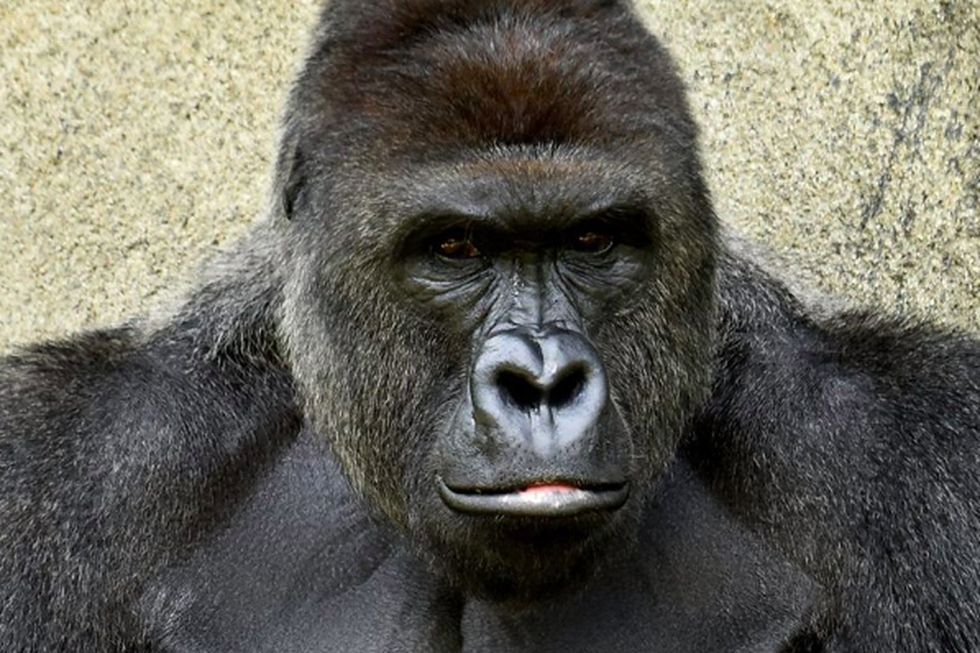CULTURE
Lewis the Koala and Harambe: Why We Care About Dead Animals More Than Dead People
26 Nov, 19

CNN
Amidst the bush fires currently ravaging Australia, an amazing video emerged depicting a grandmother rushing into the flames to rescue a koala.
The woman douses the crying koala with a water bottle and then literally takes the shirt off her own back to wrap him up and carry him to safety. Her display of bravery and compassion for a helpless animal bearing the damages of global warming did not go unnoticed.
Grandmother rescues koala from bushfirewww.youtube.com
After his rescue, Lewis the Koala was given a 50/50 chance of survival. He had serious burns to his arms, legs, and nose, but he still seemed to be eating well. Internet denizens from around the world followed the story with bated breath, rooting for Lewis’s recovery.
Sadly, though, Lewis didn’t make it.
People took to Twitter to voice their remorse.
Some shared fan art of Lewis.
One guy even compared Lewis’s death to the death of Harambe the gorilla in 2016.
That got me thinking: Why do the deaths of specific animals seem to have so much more impact on Internet audiences than the deaths of specific humans? Why does #RIPLewis trend on Twitter when so many people die everyday and nobody cares? Why did Harambe turn into such an enduring meme? Do Lewis and Harambe have anything in common other than being animals who met untimely deaths?
First thing’s first: On the surface there are some major differences between Lewis’s and Harambe’s deaths. Whereas Lewis was a harmless koala caught in a bush fire, Harambe was a massive gorilla dragging a child who fell into his cage at the zoo. As such, there are many people who might view Lewis’s death as tragic, but Harambe’s as “justified.”
But I disagree. Both deaths are incredibly tragic, and I believe there’s a common reason that both of them have affected people on the Internet in such a deep way: Their deaths were both unnatural and the result of human failure.
Lewis’s death comes amidst international cries for action against global warming. And while conservative pundits and Australian Prime Minister Scott Morrison have argued that the bush fires in Australia are unrelated to global warming, experts disagree. It’s very likely that human failure to properly act against climate change led to Lewis’s death.
Even for people who don’t care about climate change conceptually, it’s hard not to feel bad when failure to act is attached to the image of a charred koala bear clinging to life. Perhaps some people viewed Lewis’s survival (alongside the bravery of his rescuer) as indicative of hope in the face of global warming. His death, then, might serve as a symbolic blow to the hope for adequate change.

Harambe’s death was also the product of human failure. Regardless of whether or not shooting Harambe was the morally correct course of action, any danger he posed to the young boy who fell into the cage was part and parcel with being a gorilla.
Humans decided to put him in a cage for the enjoyment of other humans. Humans failed to properly watch one of their own, thereby allowing a small child to enter a dangerous situation. And ultimately, a human decided that protecting another human was worth killing a gorilla attempting to guard his home. Memes aside, the concept of murdering a gorilla in his own home is inherently upsetting–even more so when viewed in light of the human failures that led to such a tragedy.
Perhaps the reason animal deaths tend to affect us so much more than human ones (at least on the Internet) is that humans essentially rule the earth, whereas animals live at our mercy. When a human dies, we put ourselves in their shoes and consider what we would do in their situation. We question what actions led to their death, and oftentimes, we assume some degree of fault. But animals are innocent. Lewis was innocent. Harambe was innocent. They were just animals being animals, and human action led to their untimely deaths. And while there’s a whole lot of awfulness on the Internet, one thing has always been true: The Internet loves animals. #DicksOutForHarambe and #RIPLewis forever.
- Woman Rescues Burnt Koala From South Wales Bushfire | PEOPLE … ›
- Koala-sniffing dogs are on a mission to save animals from … ›
- A Dog Named Bear Is Helping to Rescue Koalas in Australia’s … ›
- Australian Koala Foundation ›
- Koala rescued from Australia bushfire reunited with hero grandma … ›
- Woman rescues injured koala from wildfire | KUTV ›
- Rescued Baby Koala Bear Climbs Rescuer’s Leg | The Dodo … ›
- Koala Ellenborough Lewis clings to life after daring rescue goes viral ›
- How a dead gorilla became the meme of 2016 – BBC News ›
- Zookeeper Finally Explains What Harambe Was Actually Doing With … ›
- Killing of Harambe – Wikipedia ›
- Gorilla Killed After Child Enters Enclosure at Cincinnati Zoo – The … ›
- Outrage Grows After Gorilla Harambe Shot Dead at Cincinnati Zoo … ›
- The Harambe meme is still going strong. And it’s about a lot more … ›
- ‘Lewis’, the koala rescued from bushfires by a grandmother, has died ›
- The woman who saved Lewis the koala | Today Show Australia … ›
- Lewis the koala dies week after rescue from Australia wildfire ›
- Koala seen in rescue from Australian bushfire dies – BBC News ›
- Koala rescued from Australia wildfires dies after injuries worsen … ›
- Koala Ellenborough Lewis rescued by selfless woman in Australia … ›
- Lewis the Koala dies weeks after rescue from Australia bushfire – CNN ›
- ‘Ellenborough Lewis,’ koala dramatically rescued from Australia … ›
- Lewis the koala dies from burn injuries in Australia fires: #RIPLewis ›













